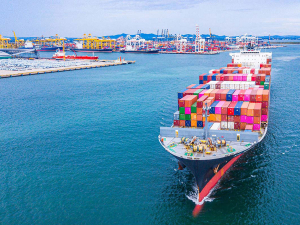Santa's present for the primary sector - an FTA with India
Primary sector leaders have welcomed the announcement of a Free Trade Agreement between India and New Zealand.
 The Dairy Companies Association of New Zealand (DCANZ) says the conclusion of trade negotiations between the Gulf Cooperation Council (GCC) and New Zealand is significant.
The Dairy Companies Association of New Zealand (DCANZ) says the conclusion of trade negotiations between the Gulf Cooperation Council (GCC) and New Zealand is significant.
New Zealand dairy processors are welcoming a new free trade deal with the country’s second largest market.
The Dairy Companies Association of New Zealand (DCANZ) says the conclusion of trade negotiations between the Gulf Cooperation Council (GCC) and New Zealand is significant and follows on from the recent conclusion of trade negotiations between New Zealand and the United Arab Emirates (UAE).
DCANZ executive director Kimberly Crewther says New Zealand exported about $1.9 billion worth of dairy products to the GCC region in the last year.
“This makes the GCC region New Zealand’s second-largest dairy market after China.
“Locking in elimination of the already low tariffs on key dairy products into this highly valuable market provides important commercial certainty for dairy exporters," says Crewther.
DCANZ congratulates Trade Minister Todd McClay and New Zealand trade negotiators on the conclusion of these negotiations.
“With New Zealand and the GCC first launching FTA negotiations back in 2007, it is good to see negotiations finally concluded. New Zealand is also the first major dairy exporter to secure a free trade agreement with the GCC and we commend the Government for continuing to pursue this outcome,” says Crewther.
"We appreciate the Government’s commitment to a trade agenda that continues to deliver for exporters, including in regions where New Zealand does not have an existing free trade agreement footprint. We strongly encourage the Government to maintain momentum and ambition to bring down barriers with other negotiating partners, including upgrading existing trade agreements that have not yet secured dairy tariff elimination."
McClay says the trade deal follows significant reengagement with the GCC following meetings with GCC Ministers at the WTO Ministerial Meeting in Abu Dhabi in February of this year and delivers on an 18 year-long ambition for New Zealand to agree this high-quality trade deal in the Middle East.
“This is the highest quality deal the GCC has done to date and its first with a major agricultural exporter,” McClay said.
“It delivers duty free access for 99% of New Zealand’s exports over 10 years and when combined with our recently concluded NZ-UAE CEPA, 51% of our exports to the region will be tariff-free from day one.”
Fonterra farmer shareholders have approved the mechanism for a $2/share capital return expected from the sale of its global consumer and associated businesses.
Trainees in the horticulture industry studying towards a certificate or diploma can now apply for Horticulture New Zealand's (HortNZ) 2026 Industry Training Scholarships programme.
OPINION: The first three Global Dairy Trade (GDT) auctions have been a morale booster for farmers.
Former Fonterra executive Alex Turnbull has been appointed CEO to lead all five Yili Oceania Business Division companies in New Zealand.
Fonterra executive René Dedoncker is leaving the co-operative later this year to lead Australian agribusiness Elders.
Alliance Group and the Southland Stags rugby team have joined forces in a partnership that will see the the meat co-operative's farmgate brand feature on players' team kits and replica jerseys.

OPINION: Here w go: the election date is set for November 7 and the politicians are out of the gate…
OPINION: ECan data was released a few days ago showing Canterbury farmers have made “giant strides on environmental performance”.